







Rebecca Strong, November 17, 2021

No matter your age or gender, it's OK to be bald! Elisabetta Zavoli/Getty Images
Roughly one-third of women experience hair loss at some point in their lives, and it becomes increasingly likely as you age. In fact, 55% of women experience some form of hair loss by age 70.
Fortunately, hair loss is generally not considered dangerous, according to Jeffrey M. Cohen, MD, Yale Medicine dermatologist.
However, Cohen says it can be a sign of an underlying medical condition that does present health risks, such as hypothyroidism.
Additionally, he notes that hair loss can cause a psychological impact and be emotionally taxing for those who identify as women, which can lead to anxiety and depression.
Here's what to know about common causes of hair loss in women, as well as how it can be treated and prevented.
There are three different types of hair loss:
Many different things can cause hair loss in women. Some of the most common are the following:
Genetics: Female pattern baldness, in particular, has been found to run in families. If your parents have pattern baldness, you're more likely to experience it.
While research has found a strong link between hair loss in men and the AR gene on the "X" chromosome, researchers have yet to isolate a specific gene for hair loss in women.
Menopause:
Post-menopausal women typically experience thinning hair, says Alexander Zuriarrain, MD, a double board-certified plastic surgeon with Zuri Plastic Surgery.In fact, up to two-thirds of women experience hair thinning or bald spots after menopause.
This happens because during menopause, women produce less estrogen and progesterone, which trigger an increase in the production of androgens. Androgens are considered to be male hormones that are linked to shrinking hair follicles and hair loss.
Nutrient deficiencies: A 2021 study found that vitamin D plays a key role in hair growth, and that deficiency in this vitamin is linked to androgenetic alopecia and telogen effluvium, among other types of alopecia.
Vitamin D deficiency is very common, affecting 41.6% of US adults — but you can easily get more of this nutrient through foods like salmon, mushrooms, egg yolks, fortified orange juice and milk. Or through an over the counter supplement if you do not prefer these foods.
An iron deficiency can also contribute to hair loss, says Zuriarrain, so it's a good idea to incorporate iron-rich foods like lentils and beans, fortified milk, and spinach, or other dark leafy greens into your diet. You can also try a supplement.
Female pattern hair loss can present in a number of different ways, says Cohen, including thinning at the top or sides of the head, widening of the central part, or patches of baldness (alopecia areata).
While your risk of hair loss grows with age, there are also other risk factors that increase your chances of hair loss including:
A physical exam by a dermatologist or other healthcare provider can reveal what type of hair loss you have, which will determine the recommended treatment.
Your doctor may visually examine your scalp and gently tug on small sections of hair — if six or more strands come out, that may indicate you have telogen effluvium, anagen effluvium, or early androgenetic alopecia.
Usually, a dermatologist will be able to identify the type and cause of hair loss during a physical exam, but if they need more info for a diagnosis — for example, if they notice lesions on the scalp — they may conduct blood tests or a scalp biopsy.
Blood tests can check for:
A biopsy typically entails puncturing the scalp to remove a small sample of tissue, which is then submitted for testing. A lab analysis of the sample can help to determine which type of hair loss you have.
"Women who experience hair loss not associated with pregnancy or stress should be evaluated by their primary care physicians to rule out other causes of hair loss such as thyroid disease, anemia, autoimmune diseases, polycystic ovarian syndrome, psoriasis, and seborrheic dermatitis," says Zuriarrain.
The right treatment for hair loss depends on the cause. Zuriarrain says hair loss related to hormonal changes from pregnancy or stress is usually only temporary, and therefore may require you to wait to give birth or take steps to mitigate your stress levels in order to treat it.
If your hair loss seems to be triggered by something else, you may consider supplements or medications. But not all supplements on the market may have scientific backing. Here are some of the ones that do:
As for medications, the only FDA-approved hair loss medication for both men and women is Minoxidil (2% or 5%). This medication is available over-the-counter and applied topically to the scalp, but may take several months until you see results.
"Minoxidil helps by keeping the hair in the strongest part of the hair cycle to improve the overall thickness of the hair," says Cohen. "This can be very safe and very effective for women with hair loss."
Another prescription hair loss medication is Spironolactone, a type of steroid that hinders the effects of androgens in the body and tends to be more effective for women who experience pre-menopausal hair loss.
Beyond supplements and medicine, other treatment options include:
It's unlikely that you can prevent hair loss related to aging, heredity, or disease, says Cohen.
However, if your hair loss is caused by something that's more related to lifestyle, then there are associated lifestyle changes you can make to reduce your risk:
Insider's takeaway
In women, hair loss becomes increasingly common with age — particularly after menopause. But it can also be caused by other factors such as genetics, malnutrition, and thyroid disorders.
That's why it's a good idea to inform your doctor about your hair loss, so they can determine the root cause and best course of treatment.
While hair loss caused by aging or genetics is unavoidable, you can address hair loss if it's related to your lifestyle by making sure you're mitigating stress, getting enough vitamin D and iron, and using gentler hair products and styling tactics.
If making those changes doesn't help, your doctor may conduct a series of tests to identify any potential underlying medical conditions.
Get a one on one consultation with Dr. Z in his beautiful practice in Miami, FL
7540 SW 61 Ave, South Miami, FL 33143





